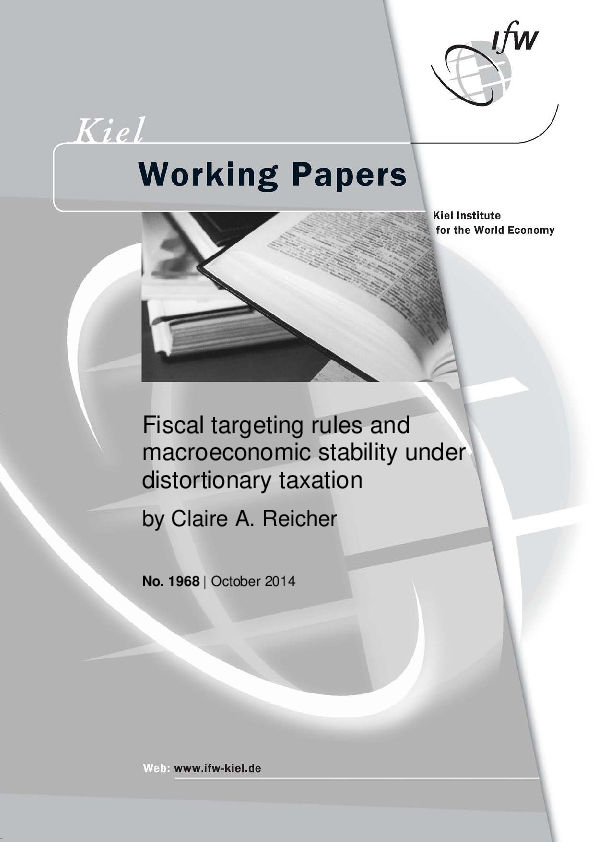Working Paper
Fiscal targeting rules and economic stability under distortionary taxation
Authors
Publication Date
JEL Classification
Key Words
While European countries have engaged in a debate about fiscal policy rules, little is known about the ability of these rules to ensure stable debt and output paths when taxes are distortionary, particularly in a small open economy. In this situation, it turns out that the interaction between a fiscal rule and output may affect whether or not fiscal policy is stabilizing, or "passive", in equilibrium. For instance, under moderate debt-multiplier combinations, a debt-GDP targeting rule can result in instability, while a debt-level targeting rule, irrespective of GDP, can result in stability. A primary deficit target may result in instability for the debt but stability for output, while a total deficit target can result in stability for both debt and output. A fiscal reaction function similar to those found in the macro literature may result in stability for certain parameter values, so long as the response of fiscal policy to the past debt level is strong enough to overcome the interactions among fiscal policy, output, and interest rates. Furthermore, under certain conditions, optimal policy mimics a fiscal reaction function with a moderate degree of business cycle stabilization policy.






